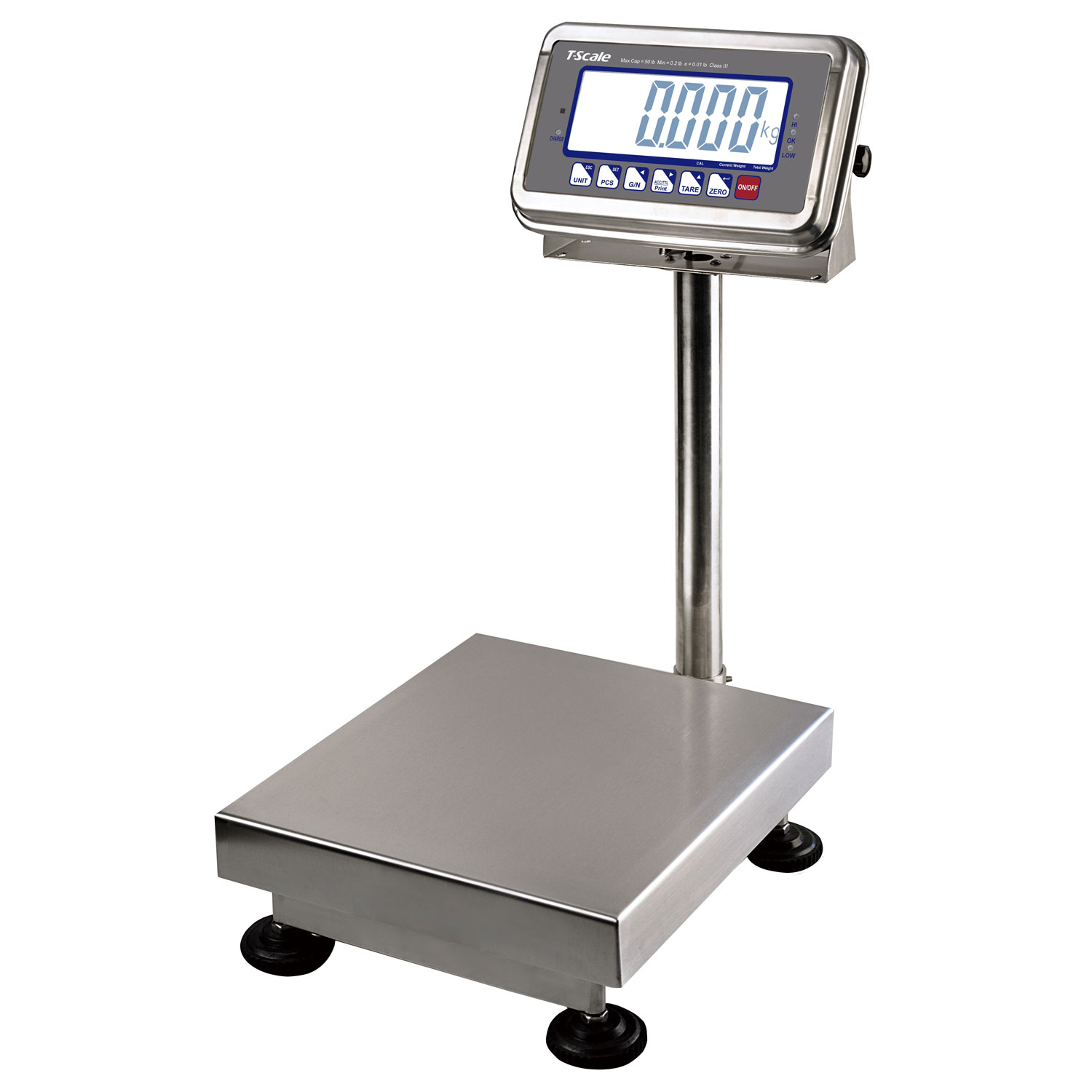The Role of Industrial Scales in Ensuring Accurate Inventory Management
The Role of Industrial Scales in Ensuring Accurate Inventory Management
Blog Article
How Industrial Scales Work: A Detailed Review for New Users
Recognizing the auto mechanics behind industrial scales is vital for brand-new customers who intend to guarantee accuracy in their dimensions. These devices depend on tons cells and stress gauge modern technology to convert weight right into a quantifiable layout, but the subtleties of their procedure extend past mere performance. From the different kinds available to the crucial strategies for proper usage and maintenance, each element plays a significant function in accomplishing reputable results. As we check out these components, one need to consider how these elements connect to improve performance in varied commercial applications.
Fundamentals of Industrial Scales
Industrial ranges are necessary tools made use of across different markets, consisting of production, logistics, and agriculture, to ensure accurate weight dimensions of hefty tons. The essential concept behind industrial scales includes the conversion of weight right into a quantifiable form that can be presented digitally or analogically. These scales employ numerous systems, such as load cells or mechanical levers, to figure out the weight of objects positioned upon them.

In addition to their dimension capabilities, commercial ranges are created to hold up against extreme environments, including durable building and construction that stands up to dirt, moisture, and hefty effects. Calibration and maintenance are essential to make sure accuracy, as even small inconsistencies can lead to considerable financial effects. By recognizing the essentials of commercial scales, individuals can value their relevance in various industrial applications.
Kinds Of Industrial Scales
Different sorts of commercial scales cater to the varied demands of different markets, each created to handle particular weighing tasks with accuracy and reliability. Amongst the most common types are flooring scales, which are excellent for evaluating hefty and bulky things. These scales typically feature huge systems and can accommodate palletized items, making them vital in storehouses and delivery facilities.
One more type is bench scales, which are often made use of for smaller sized items in production and retail setups. They supply exact dimensions for items that call for accuracy, such as chemicals or parts in assembly lines (Industrial Scales). For mobile operations, mobile ranges use versatility and simplicity of transportation, suitable for fieldwork or temporary installations
In applications requiring high-capacity measurements, such as in bulk product handling, crane scales and lots cells are employed. These scales can determine loads suspended from a crane or various other training apparatus, guaranteeing safety and accuracy during procedures. Additionally, specialized ranges like checkweighers are made use of in assembly line to keep quality assurance by guaranteeing that items satisfy weight specs. Each sort of commercial scale plays a crucial function in enhancing functional effectiveness and precision across different sectors.
How Considering Devices Work
Considering systems are crucial parts that enable precise measurement of mass throughout various commercial scales. These devices use numerous concepts of physics and engineering to provide specific weight readings, crucial for supply administration, quality assurance, and conformity with regulatory requirements.
One typical kind of evaluating mechanism is the lots cell, which operates on the concept of pressure determines. When a lots is applied, the load cell flaws somewhat, producing an electric signal proportional to the weight. This signal is after that exchanged an understandable weight measurement by the scale's electronics.
Another commonly used mechanism is the mechanical equilibrium, which employs a system of levers and weights. Industrial Scales. This method counts on the concept of equilibrium, where the weight of the item being measured is stabilized versus understood weights, enabling for straight dimension
Furthermore, pneumatic and hydraulic ranges leverage fluid dynamics concepts to gauge weight. These systems utilize the stress applied by a load to identify weight, using high accuracy for huge lots.
Proper Usage Methods
When using commercial scales, adhering to appropriate use techniques is vital for maintaining and guaranteeing precise dimensions tools honesty. First and primary, it is necessary to pick the ideal scale for your certain application, as scales differ in ability and precision.
Prior to weighing, guarantee that the range is positioned on a stable, level surface area devoid of resonances or disruptions. This will help to lessen errors triggered by outside elements. Furthermore, adjust the scale according to the maker's specs before make use of, making certain that it is working properly.
When placing products on the range, distribute the weight equally to avoid tipping or harming the equipment. Always permit the range to maintain before tape-recording the weight, as changes might take place during initial placement. For bulk materials, utilize containers that are proper for the range size to prevent overloading.
Furthermore, avoid placing cool or extremely hot things straight on the range, as temperature level variants can influence precision. Keep the considering platform tidy and complimentary of particles to avoid contamination and make sure reliable outcomes. By complying with these strategies, users can make best use of the performance and long life of their industrial ranges.
Maintenance and Calibration Tips
Making certain the long life and precision of commercial scales needs diligent upkeep and routine calibration. A precautionary upkeep schedule is important; it needs to navigate to this site consist of regular inspections to determine deterioration, specifically on tons cells and various other delicate elements. Regularly cleaning the scale's surface and making sure the surrounding location is cost-free from particles will assist preserve its integrity and performance.
Calibration is just as necessary and need to be performed at normal periods or whenever the range experiences considerable modifications in temperature level, moisture, or physical variation. Use certified calibration weights that are deducible to nationwide requirements for precision. File each calibration session thoroughly to track performance with time and recognize any patterns or repeating problems.
In addition, be mindful of the scale's atmosphere. Prevent placing it near sources of vibration, electro-magnetic disturbance, or severe temperature levels, as these variables can detrimentally affect measurements. Train all operators on correct range use and maintenance protocols to ensure regular performance and precision. By sticking to these upkeep and calibration ideas, users can improve the dependability of their commercial scales, making certain optimal operation in any setup.
Verdict

Recognizing the mechanics behind industrial ranges is essential for brand-new individuals that want to ensure accuracy in their dimensions.Industrial scales are necessary devices made use of throughout various sectors, including manufacturing, logistics, and agriculture, to ensure precise weight dimensions of hefty tons. The essential principle behind industrial scales involves the conversion of weight right into a quantifiable kind that can be displayed digitally or analogically. By understanding the fundamentals of commercial ranges, users can appreciate their importance in numerous commercial applications.
In conclusion, understanding the operation and maintenance of commercial scales is Visit Your URL vital for making certain exact weight dimensions in different applications. (Industrial Scales)
Report this page